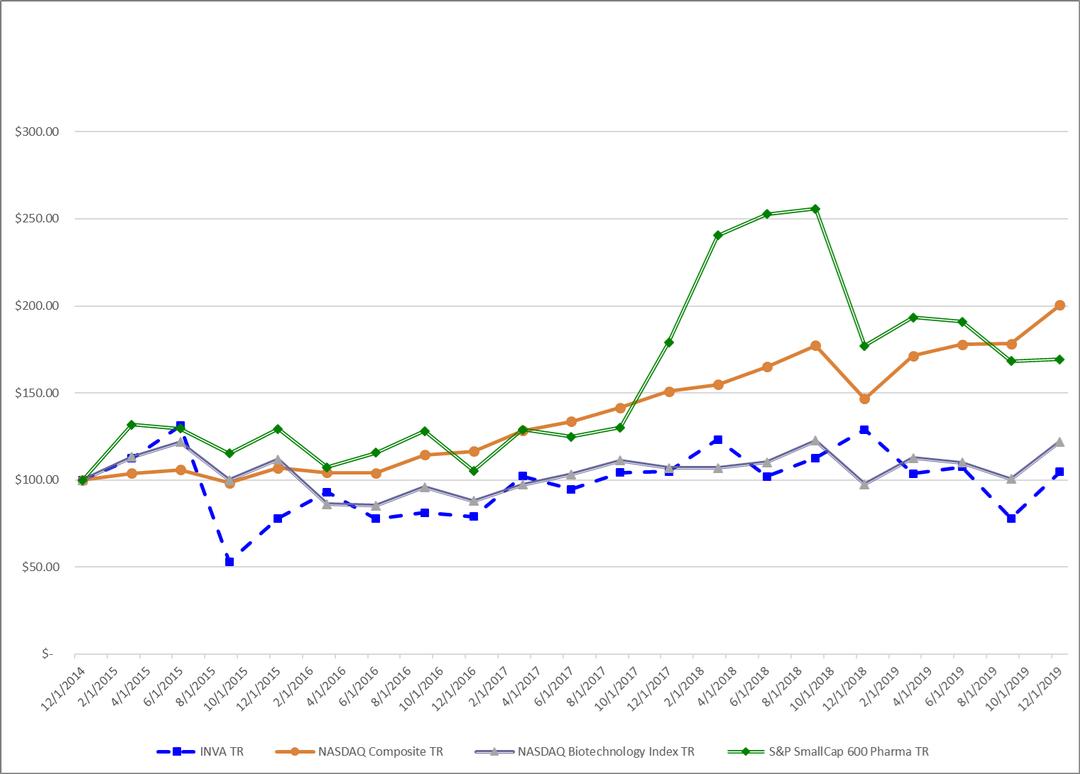Reduced prices and reimbursement rates due to the actions of governments, payors, or competition or other healthcare cost containment initiatives such as restrictions on use, may negatively impact royalties generated under the GSK Agreements.
The continuing efforts of governments, pharmaceutical benefit management organizations (“PBMs”), insurance companies, managed care organizations and other payors of health care costs to contain or reduce costs of health care has adversely affected the price, market access, and total revenues of RELVAR®/BREO® ELLIPTA®, ANORO® ELLIPTA®, and TRELEGY® ELLIPTA® and may continue to adversely affect them in the future. In addition, we have experienced and expect to continue to experience increased competitive activity, which has resulted in lower overall prices for our products.
The Patient Protection and Affordable Care Act, as amended by the Health Care and Education Reconciliation Act of 2010 (together, “PPACA”) and other legislative or regulatory requirements or potential legislative or regulatory actions regarding healthcare and insurance matters, along with the trend toward managed healthcare in the U.S., could adversely influence the purchase of healthcare products and reduce demand and prices for our partnered products. This could harm GSK’s ability to market our partnered products and significantly reduce future revenues. For example, when GSK launched RELVAR®/BREO® ELLIPTA® for the treatment of COPD in the U.S. in October 2013, GSK experienced significant challenges gaining coverage at some of the largest PBMs, healthcare payors, and providers and lower overall prices than expected. Recent actions by U.S. PBMs in particular have increased discount levels for respiratory products resulting in lower net sales pricing realized for products in our collaboration. In addition, in certain foreign markets, the pricing of prescription drugs is subject to government control and reimbursement may in some cases be unavailable. We believe that pricing pressures will continue and may increase. This may make it difficult for GSK to sell our partnered products at a price acceptable to us or GSK or to generate revenues in line with our analysts’ or investors’ expectations, which may cause the price of our securities to fall.
More recently, the current presidential administration and the U.S. Congress have taken actions in an effort to replace PPACA and related legislation with new healthcare legislation. There is uncertainty with respect to the impact these potential changes may have, if any, and any changes will likely take time to unfold, and could have an impact on coverage and reimbursement for healthcare items and services covered by plans that were authorized by PPACA. However, we cannot predict the ultimate content, timing or effect of any healthcare reform legislation or the impact of potential legislation on us.
We expect that additional state and federal healthcare reform measures will be adopted in the future, any of which could limit the amounts that federal and state governments will pay for healthcare products and services, which could result in reduced demand for our products once approved or additional pricing pressures, and may adversely affect our operating results.
Our current revenues are from royalties derived from sales of our respiratory products partnered with GSK, RELVAR®/BREO® ELLIPTA®, ANORO® ELLIPTA®, and TRELEGY® ELLIPTA®. If the treatment paradigm for the indications our partnered products are approved for change or if GSK is unable to, or does not devote sufficient resources to, maintain or continue increasing sales of these products, our results of operations will be adversely affected.
We currently depend on royalties from sales of our products partnered with GSK to support our existing operations. The treatment paradigm for COPD and asthma constantly evolve. For instance, in November 2018, the GOLD guidelines were revised to favorably position bronchodilator monotherapy and LABA/LAMA treatment ahead of ICS/LABA for the treatment of COPD unless the patient has frequent exacerbations or an eosinophil count greater than 300 per cubic microliter. The use of ICS in COPD is also recommended for patients requiring triple therapy (LABA, LAMA, ICS). If the treatment paradigms were to change further, causing our partnered products to fall out of favor, or if GSK were unable, or did not devote sufficient resources, to maintain or continue increasing RELVAR®/BREO® ELLIPTA® and ANORO® ELLIPTA® sales, our results of operations would likely suffer and the price of our securities could fall.
If the commercialization of RELVAR®/BREO® ELLIPTA®, ANORO® ELLIPTA® or TRELEGY® ELLIPTA® in the countries in which they have received regulatory approval encounters any delays or adverse developments, or perceived delays or adverse developments, or if sales or payor coverage does not meet investors’, analysts’, or our expectations, our business will be harmed, and the price of our securities could fall.
Under our agreements with our collaborative partner GSK, GSK has full responsibility for commercialization of RELVAR®/BREO® ELLIPTA®, ANORO® ELLIPTA® or TRELEGY® ELLIPTA®. GSK has launched RELVAR®/BREO® ELLIPTA®, ANORO® ELLIPTA® and TRELEGY® ELLIPTA® in a number of countries, including the United States, Canada, Japan, the United Kingdom, and Germany, among others. The commercialization of the products in countries where they are already launched and the commercialization launch in new countries are still subject to fluctuating overall pricing levels and uncertain timeframes to obtain payor coverage. Any delays or adverse developments or perceived additional delays or adverse developments with respect to the commercialization of RELVAR®/BREO® ELLIPTA®, ANORO® ELLIPTA® and TRELEGY® ELLIPTA®
